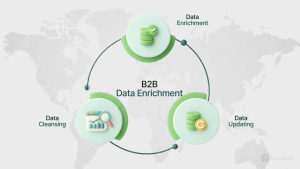Backlinks, also known as inbound links, are links from other websites that point to your website. For search engine optimization (SEO), backlinks remain a crucial ranking factor that can make or break a website’s visibility in search engine results pages (SERPs). These links act as votes of confidence, signaling to search engines that your content is valuable, relevant, and trustworthy.

Why Backlinks Matter for SEO
Search engines like Google use complex algorithms to index and rank websites. They evaluate many on-page and off-page factors during this process. Backlinks are one of the most important off-page ranking signals. They act as third-party endorsements of a website’s authority and credibility.
When a trusted site links to your content, it signals value and trustworthiness. Search engines see this as a vote of confidence in your site. High-quality sites rarely link to low-value or spammy pages. The more strong backlinks you earn, the higher your chances of ranking well.
Backlinks help search engines decide if your content is relevant to certain topics. They are key for improving visibility in search results for targeted keywords.
What Makes a Backlink Valuable
Not all backlinks have the same impact. Search engines assess their quality using advanced algorithms. Key factors include the authority of the linking site and link relevance. The anchor text and placement also affect backlink value.
Links from respected, relevant sites are more powerful than those from low-quality sources. Context matters—links within helpful, informative content carry more weight. Links in footers, comments, or unrelated pages are less valuable.
Spammy tactics like link buying or using link farms are risky. Search engines penalize these practices, hurting your visibility.
To build strong backlinks, focus on valuable, link-worthy content. Use strategies like guest blogging, outreach, and online community engagement. Earning backlinks naturally is the most effective long-term approach.
Why Are Backlinks Important for SEO?
- Authority and Credibility: Search engines like Google view backlinks as endorsements from other websites. The more high-quality backlinks your site has, the more authority and credibility it is perceived to have in the eyes of search engines. This, in turn, can positively impact your website’s ranking for relevant keywords and phrases.
- Improved Rankings: Backlinks are one of the most influential ranking factors used by search engines to determine the relevance and quality of a website. By earning backlinks from authoritative and relevant websites, your site’s rankings can improve significantly, leading to increased visibility and organic traffic.
- Referral Traffic: In addition to their direct impact on rankings, backlinks can also drive referral traffic to your website. When users click on a backlink from another site, they are directed to your content, potentially increasing your overall website traffic and engagement.
- Link Equity and PageRank: Search engines use algorithms like PageRank to evaluate the importance of web pages based on the number and quality of backlinks they receive. The more high-quality backlinks a page has, the higher its PageRank, and the more likely it is to rank well in search results.
Understanding Backlink Quality
Not all backlinks are created equal. Search engines evaluate backlinks based on various factors, including the quality and relevance of the linking website, the anchor text used, and the context in which the link appears.
Types of Backlinks
1. Editorial Backlinks (Natural Links)
These are the most valuable type of backlinks. They occur naturally when others find your content useful and link to it without being asked. Editorial backlinks are seen as genuine endorsements of your content. Search engines highly value them for their authenticity and relevance.
2. Guest Post Backlinks
Guest posting means writing content for another site in your niche. In return, you get a link back to your site. These links often appear in the article body or author bio. When published on reputable sites, guest posts can build strong, relevant backlinks.
3. Directory Backlinks
Directories allow you to list your website and include a link. Once popular, their value has declined due to spammy directories. However, backlinks from well-maintained, relevant directories can still help. They add credibility and improve visibility in niche searches.
4. Comment Backlinks
These are links added when commenting on blogs or forums. They usually appear with your name or in the comment text. Comment backlinks are generally low-value and often ignored by search engines. Spammy or irrelevant comments can even hurt your SEO.
5. Resource or Link Page Backlinks
Some sites host resource pages that link to helpful content. Getting listed here can boost your credibility and traffic. Make sure the resource page is active, relevant, and well-maintained. Quality matters more than quantity with these backlinks.
6. Image Backlinks
These occur when others use your images and credit your site. They may link back as a source or attribution. Image backlinks help search engines understand your content and improve visibility.
Optimizing image names and alt text can enhance their SEO value.
How to Build a Solid Backlink Strategy
To leverage the power of backlinks effectively, it’s crucial to develop a solid backlink strategy. Here are some key considerations:
- Focus on Quality Over Quantity: While having a large number of backlinks can be beneficial, it’s more important to focus on earning high-quality backlinks from authoritative and relevant websites. A few quality backlinks can outweigh hundreds of low-quality ones.
- Diversify Your Backlink Sources: Search engines value backlinks from a diverse range of websites, rather than a concentrated number of links from a few sources. Aim to earn backlinks from a variety of reputable websites in your industry.
- Create Linkable Assets: Develop high-quality, valuable content that others will naturally want to link to. This could include in-depth guides, research studies, infographics, or expert industry opinions.
- Leverage Content Promotion: In addition to creating linkable assets, actively promote your content through outreach, social media, and other channels to increase its visibility and chances of earning natural backlinks.
- Monitor and Disavow Low-Quality Backlinks: While earning high-quality backlinks is essential, it’s also important to monitor and disavow any low-quality or spammy backlinks that could harm your site’s reputation and rankings.
Conclusion
In conclusion, backlinks remain a vital component of a successful SEO strategy. By earning high-quality backlinks from authoritative and relevant websites, you can enhance your website’s credibility, improve its rankings, and drive valuable referral traffic. However, it’s crucial to focus on quality over quantity and develop a comprehensive backlink strategy that aligns with search engine guidelines and best practices.
Email verification tools like Gamalogic can play a valuable role in the process of building high-quality backlinks for search engine optimization (SEO) purposes. When reaching out to other websites and webmasters for potential guest posting opportunities or content collaboration, having an accurate and up-to-date email list is essential. Email verification tools like Gamalogic can help ensure that your outreach efforts are directed towards valid and deliverable email addresses, increasing the chances of your message being received and considered. By verifying email addresses and removing invalid or non-existent ones from your list, you can save time and resources, ultimately improving the efficiency of your backlink acquisition strategy. Furthermore, a clean and accurate email list can enhance your overall email marketing efforts, which may include content promotion and outreach campaigns aimed at earning natural backlinks from authoritative sources.
You might also like

The Truth About B2B Data Enrichment in MENA & Asia (And What Actually Works)
Enriching B2B leads in MENA and Asia is tough. The answer isn’t more vendors but a smarter system: multi-source enrichment, real-time email validation, and automated CRM workflows. That’s where Gamalogic excels delivering enriched, verified, and instantly usable data.

Email Finding Explained: How to Connect with Key Contacts Online
This blog breaks down modern email finding—showing you how to efficiently connect with the right contacts online using ethical, accurate, and time-saving methods. Learn the tools, techniques, and best practices to grow your network without compromising trust.

Master Lead Prospecting: Actionable Strategies to Drive Your Sales Forward
Mastering practical prospecting requires a strategic focus on optimizing your email infrastructure, precision targeting, and effective messaging. By honing in on these essential elements discussed in this blog, you can elevate your lead prospecting and generation efforts, boost engagement, and achieve outstanding results.






 No credit card required
No credit card required


Post your Comment.